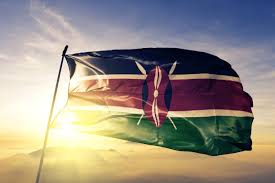
Kenya’s finance ministry is turning to the public for help in crafting new legislation to boost revenue and address economic challenges. This move comes after widespread protests forced the government to withdraw its controversial financing law earlier this year.
The protests, which tragically resulted in over 50 deaths, led President William Ruto to scrap tax hikes worth more than 346 billion shillings. This decision has left the government grappling with a larger budget deficit, mounting unpaid bills, and delays in funding from international financial institutions.
Finance Minister John Mbadi, recently appointed from the opposition ranks, acknowledged the difficult situation, stating, “We are barely managing.” He plans to issue a circular inviting public participation in proposing legislative reforms to improve the country’s economic situation.
Despite these challenges, Mbadi emphasized that Kenya will continue to service its debt, which currently exceeds recommended levels. He ruled out debt restructuring, asserting that the country will manage and pay its debts to remain financially stable.
Looking ahead, the government is considering potential tax cuts in the medium term, including reducing the value-added tax and lowering the corporate income tax. These measures aim to stimulate economic growth and ease the burden on businesses and consumers once the financial situation improves.
